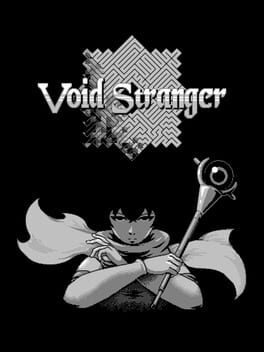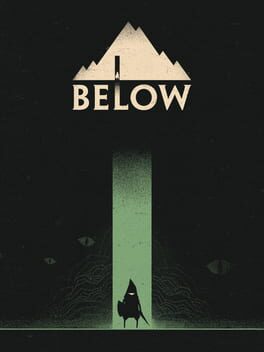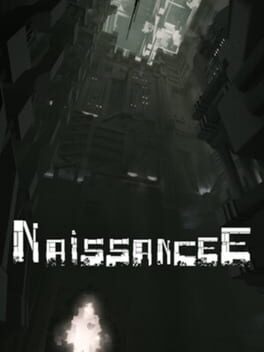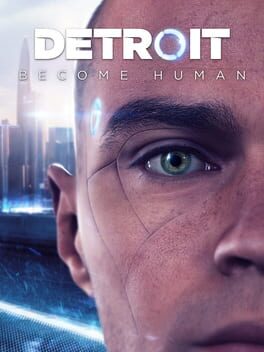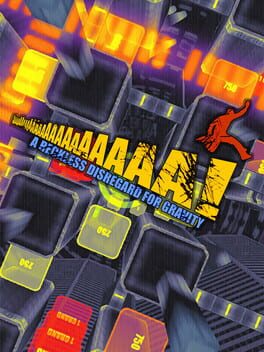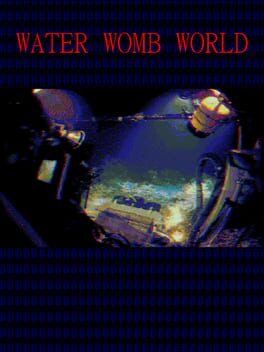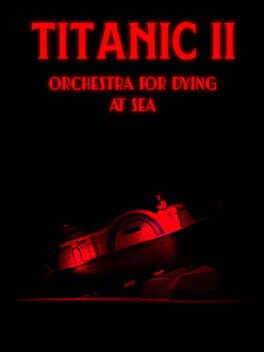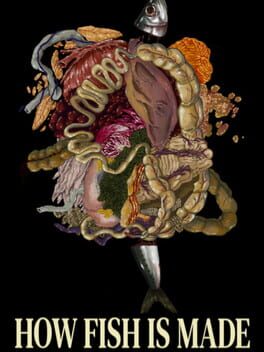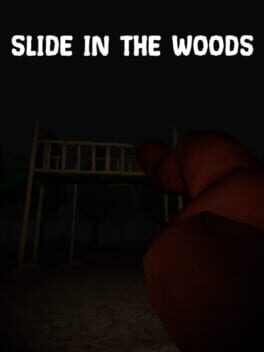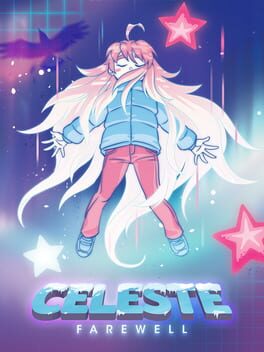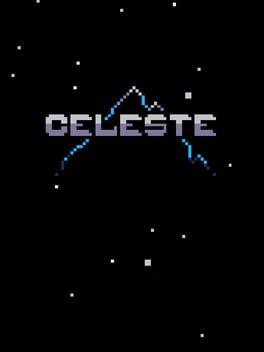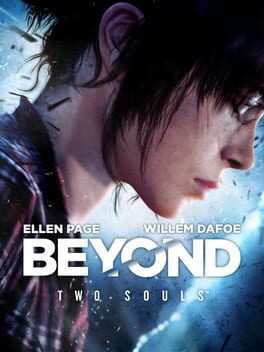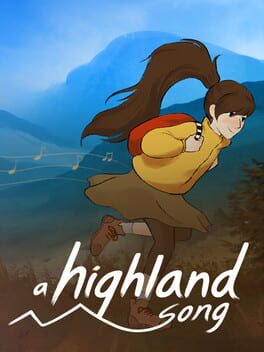2023
Necesitaría mucho más que unas pocas líneas para intentar describir los altibajos emocionales que Void Stranger me ha provocado. Incomprensión e incomodidad, interés y fascinación, rabia y melancolía, alegría y asombro, y finalmente, un tono agridulce al que me alegro de haber jugado. Por cada piso que pude terminar por mi cuenta, hubo tres que tuve que buscar la solución online; por cada mural que descifré, dos que no hubiera entendido jamás; y por cada escena de culpa católica enmarcada en personajes estereotípicos que me hizo apretar los dientes de la indignación, hubo tres que me hicieron sentir que estaba tocando de verdad al autore.
Decimos que los juegos son obras personales de la misma forma que decimos que detrás de cada obra de arte se sobreentiende siempre cierto esfuerzo y horas de trabajo: como una convención comodona, destinada a reafirmar nuestra decisión de dedicar el poco tiempo que tenemos de vida a un arte que seguramente no posea ni la mitad de humanidad que el poema más parco. Con Void Stranger sentí que experimentaba arte y basura a partes iguales, y en ese sentido, es un juego que me ha hecho pensar más que nunca en mi relación con este medio que me ha traído tantas alegrías y tantas, tantas decepciones.
Puedes admirar Void Stranger por la inquina mentalidad puesta a la hora de diseñar según que puzzles, y puedes detestarlo por su tendencia casi obsesiva a la ofuscación, que en más de una ocasión me hicieron querer cortar del todo. También puedes reconocer su intrincada narración, digna de cierta escuela de diseño post-Undertale que pareció tomar como única lección el accidente de Gaster. Pero para mí, lo que tiene valor de esta maraña de modos extra es el hecho de que, al final del día, el mensaje siempre es el mismo, el de la importancia de aprender a amar. En los momentos en que es así de simple, Void Stranger me agarra de verdad, y en los momentos en que deja relucir sus partes más avergonzadas, es cuando me irrita de verdad.
Así que le pongo un 4, porque supongo que un 5 quedaría reservado para los juegos que me afectan a un nivel estrictamente personal o me parecen encapsulaciones ideales de una forma que no siempre sabré explicar, puedo afirmar sin ninguna duda que hay muchas cosas en Void Stranger que no me gustan. Pero no puedo negar que me ha hecho pensar de un modo que pocas obras, irónicamente desde Undertale, lograron.
--------------------------
I would need much more than a few lines to describe the emotional ups and downs that Void Stranger has provoked in me. Incomprehension and discomfort, interest and fascination, anger and melancholy, joy and wonder, and finally, a bittersweet note that I'm glad I had the opportunity to experience. For every floor I was able to finish on my own, there were three I had to look up the solution online for; for every mural I deciphered, two of them I would never have guessed on my own; and for every scene of Catholic guilt framed by stereotypical characters that made me cringe in indignation, there were three that made me feel like I was really reaching the author.
We say that games are personal works in the same way that there's always some effort put behind everything, in the sense that we use to reaffirm our life choice to devote so much of our precious time on Earth to an art form that probably doesn't have as much humanity within it as the shortest poem. With Void Stranger I felt like I was experiencing art and dreck on several occasions, and in that sense, it is a game that has made me think more about my relationship with a medium that has brought me so much joy and yet so much disappointment than many others.
You can admire Void Stranger for its devilish attitude towards puzzle design, and you can loathe it for its almost obsessive tendency to obfuscation, which made me want to quit it many times. You can also recognize its intricate storytelling, worthy of a post-Undertale school of design that took Gaster's accidental fame as its main bullet point. But for me, what's valuable about this mess of a title is the fact that, at the end of the day, the message remains the same: That of the importance of being loved. When it's that simple, is when it grabs me better. And when it's much more dishonest and shameful is when it really irritates me.
So I give it a 4, because I suppose a 5 should be reserved for games that affect me on a very personal level or encapsulate an ideal form of gaming that I'm not always good at explaining. I can state without a doubt that there are many things in Void Stranger that I don't like. But I can't deny that it has made me think in a way that few works, ironically since Undertale, managed to do.
Decimos que los juegos son obras personales de la misma forma que decimos que detrás de cada obra de arte se sobreentiende siempre cierto esfuerzo y horas de trabajo: como una convención comodona, destinada a reafirmar nuestra decisión de dedicar el poco tiempo que tenemos de vida a un arte que seguramente no posea ni la mitad de humanidad que el poema más parco. Con Void Stranger sentí que experimentaba arte y basura a partes iguales, y en ese sentido, es un juego que me ha hecho pensar más que nunca en mi relación con este medio que me ha traído tantas alegrías y tantas, tantas decepciones.
Puedes admirar Void Stranger por la inquina mentalidad puesta a la hora de diseñar según que puzzles, y puedes detestarlo por su tendencia casi obsesiva a la ofuscación, que en más de una ocasión me hicieron querer cortar del todo. También puedes reconocer su intrincada narración, digna de cierta escuela de diseño post-Undertale que pareció tomar como única lección el accidente de Gaster. Pero para mí, lo que tiene valor de esta maraña de modos extra es el hecho de que, al final del día, el mensaje siempre es el mismo, el de la importancia de aprender a amar. En los momentos en que es así de simple, Void Stranger me agarra de verdad, y en los momentos en que deja relucir sus partes más avergonzadas, es cuando me irrita de verdad.
Así que le pongo un 4, porque supongo que un 5 quedaría reservado para los juegos que me afectan a un nivel estrictamente personal o me parecen encapsulaciones ideales de una forma que no siempre sabré explicar, puedo afirmar sin ninguna duda que hay muchas cosas en Void Stranger que no me gustan. Pero no puedo negar que me ha hecho pensar de un modo que pocas obras, irónicamente desde Undertale, lograron.
--------------------------
I would need much more than a few lines to describe the emotional ups and downs that Void Stranger has provoked in me. Incomprehension and discomfort, interest and fascination, anger and melancholy, joy and wonder, and finally, a bittersweet note that I'm glad I had the opportunity to experience. For every floor I was able to finish on my own, there were three I had to look up the solution online for; for every mural I deciphered, two of them I would never have guessed on my own; and for every scene of Catholic guilt framed by stereotypical characters that made me cringe in indignation, there were three that made me feel like I was really reaching the author.
We say that games are personal works in the same way that there's always some effort put behind everything, in the sense that we use to reaffirm our life choice to devote so much of our precious time on Earth to an art form that probably doesn't have as much humanity within it as the shortest poem. With Void Stranger I felt like I was experiencing art and dreck on several occasions, and in that sense, it is a game that has made me think more about my relationship with a medium that has brought me so much joy and yet so much disappointment than many others.
You can admire Void Stranger for its devilish attitude towards puzzle design, and you can loathe it for its almost obsessive tendency to obfuscation, which made me want to quit it many times. You can also recognize its intricate storytelling, worthy of a post-Undertale school of design that took Gaster's accidental fame as its main bullet point. But for me, what's valuable about this mess of a title is the fact that, at the end of the day, the message remains the same: That of the importance of being loved. When it's that simple, is when it grabs me better. And when it's much more dishonest and shameful is when it really irritates me.
So I give it a 4, because I suppose a 5 should be reserved for games that affect me on a very personal level or encapsulate an ideal form of gaming that I'm not always good at explaining. I can state without a doubt that there are many things in Void Stranger that I don't like. But I can't deny that it has made me think in a way that few works, ironically since Undertale, managed to do.
2018
Juegos como Below nos invitan a plantearnos qué tipo de vacío tuvo que revelar Dark Souls en el corazón de les jugadores para que se lanzara toda una escuela de roguelikes inspirada en su modelo. Below cumple, a nivel superficial, con todas las expectativas: exploración de tierras desconocidas y abandonadas, cercanía siempre amenazante de la muerte, y un mundo hostil e indiferente al que no nos ata nada que no sea el deseo de controlarlo y (spoilers para el final) acabar con él.
Below cumple con todas las marcas prototípicas del Soulslike, pero añade un par de elementos que lo diferencian radicalmente. El primero es que los controles y el combate son mucho más sencillos, mucho más cerca de un Zelda que de otra cosa. Con ese esquema, la sensación de peligro se ve menos acrecentada por los enemigos y más por las trampas del mundo, que se sienten verdaderamente crueles y malintencionadas de un modo que la premeditada y controlada indiferencia de los Souls nunca evoca. El segundo es que, cuando morimos, uno de nuestros compañeres/descendientes ocupa nuestro lugar de inmediato. En los niveles más complicados y severos, esto da a Below una capa de gestión cruel sobre mandar a tu gente a morir mientras recoges los fragmentos almacenas las armas más potentes. Ni siquiera Darkest Dungeon te invitaba a ver a tus avatares de una forma tan inhumana.
En resumen, diría que este juego es muy logrado, pero frustrante de un modo que no termina de conectar conmigo. Irónicamente, el elemento que más me desconectó fue la necesidad de grindear para la última sección de la mazmorra.
----------------------
Games like Below invite us to ask what kind of void did Dark Souls reveal to players so that many roguelikes would try to fill it in later years. It superficially meets all the expectations of the genre: exploration of unknown, desolated lands, the looming closeness of death, and a hostile and indifferent world that means nothing to us except how can we control it (spoilers for the end) finish it.
Below checks every proverbial Soulslike checkmark, but has a couple of elements radically set it apart. The first is that the controls and combat are much simpler, closer to Zelda than anything else really. With those mechanics the sense of danger is incentivized less by enemies and more by the traps, which feel truly cruel and malicious in a way that the Souls titles never attempt to evoke. The second is that when we die one of our companions/descendants will take our place. In the more difficult areas, this gives Below a layer of cruel management vibe about sending people to their death while you collect the shards and stash the better weapons. Not even Darkest Dungeon invited you to view your avatars so inhumanly.
To sum up, I would say that this game accomplished everything it set out to do, but frustrating in a way that didn't connect with me. Ironically, the element that turned me off the most was the need to grind for the last section of the dungeon.
Below cumple con todas las marcas prototípicas del Soulslike, pero añade un par de elementos que lo diferencian radicalmente. El primero es que los controles y el combate son mucho más sencillos, mucho más cerca de un Zelda que de otra cosa. Con ese esquema, la sensación de peligro se ve menos acrecentada por los enemigos y más por las trampas del mundo, que se sienten verdaderamente crueles y malintencionadas de un modo que la premeditada y controlada indiferencia de los Souls nunca evoca. El segundo es que, cuando morimos, uno de nuestros compañeres/descendientes ocupa nuestro lugar de inmediato. En los niveles más complicados y severos, esto da a Below una capa de gestión cruel sobre mandar a tu gente a morir mientras recoges los fragmentos almacenas las armas más potentes. Ni siquiera Darkest Dungeon te invitaba a ver a tus avatares de una forma tan inhumana.
En resumen, diría que este juego es muy logrado, pero frustrante de un modo que no termina de conectar conmigo. Irónicamente, el elemento que más me desconectó fue la necesidad de grindear para la última sección de la mazmorra.
----------------------
Games like Below invite us to ask what kind of void did Dark Souls reveal to players so that many roguelikes would try to fill it in later years. It superficially meets all the expectations of the genre: exploration of unknown, desolated lands, the looming closeness of death, and a hostile and indifferent world that means nothing to us except how can we control it (spoilers for the end) finish it.
Below checks every proverbial Soulslike checkmark, but has a couple of elements radically set it apart. The first is that the controls and combat are much simpler, closer to Zelda than anything else really. With those mechanics the sense of danger is incentivized less by enemies and more by the traps, which feel truly cruel and malicious in a way that the Souls titles never attempt to evoke. The second is that when we die one of our companions/descendants will take our place. In the more difficult areas, this gives Below a layer of cruel management vibe about sending people to their death while you collect the shards and stash the better weapons. Not even Darkest Dungeon invited you to view your avatars so inhumanly.
To sum up, I would say that this game accomplished everything it set out to do, but frustrating in a way that didn't connect with me. Ironically, the element that turned me off the most was the need to grind for the last section of the dungeon.
2014
Un juego absorbente y amenazador, adelantado a su tiempo y al mismo tiempo extremadamente deudor de su época. Firme heredero de los juego-puzzles hechos durante la eclosión indie como AntiChamber (en sí, descendientes de Portal), NaissanceE aporta ofuscación y completo minimalismo para dejarte sólo con las sensaciones. El resultado es excelente, y realmente no tendría nada más que añadir salvo, quizá, un final un poco menos abrupto.
-----------------
An absorbing and enticing game, ahead of its time and at the same time extremely of its time. As an offshoot of the puzzle games boom made during the indie era ala AntiChamber (which came directly from Portal), NaissanceE brings obfuscation and minimalism so that you may just bask in sensation. The results are excellent, and the only thing I'd say is that this needed a slightly less abrupt ending.
-----------------
An absorbing and enticing game, ahead of its time and at the same time extremely of its time. As an offshoot of the puzzle games boom made during the indie era ala AntiChamber (which came directly from Portal), NaissanceE brings obfuscation and minimalism so that you may just bask in sensation. The results are excellent, and the only thing I'd say is that this needed a slightly less abrupt ending.
A estas alturas no le descubro a nadie nada si le digo que Detroit: Become Human es, como cualquier otra obra de Quantic Dream, una idea profundamente fallida que se desploma por su propio peso, y que cualquier virtud que puedas hallar a las horas echadas para diseñar este monstruo (el impresionante árbol de decisiones, la calidad singular de algunas escenas e incluso, por difícil que cueste creer, la fuerza de algunas partes del guion) se va a ver menoscabada por multitud de pequeños detalles molestos que dejan del trabajo de Quantic Dream una impresión antipática. Pero lo que no he visto comentar mucho es que, detrás de todas sus ínfulas de "película interactiva", lo que los trabajos del estudio francés me recuerdan sobre todo es al boom de la aventura gráfica europea de los 2000. Detroit: Become Human no merece ser burlado por no lograr, pese a todo el dinero invertido, acercarse a Blade Runner o a Yo, Robot; merece ser burlado por no acercarse a la calidad de Post Mortem y Still Life.
Sinceramente, me da más lástima que otra cosa a estas alturas.
--------------------------------
At this point I'm not telling anything new if I say Detroit: Become Human is, like any previous Quantic Dream work, a deeply flawed idea work collapses under its own weight, or that any virtue that you may find within, like the choice tree, the quality of some maps and even, as hard as it is to believe, the strength of some aspects of the script, will be undermined by many annoying little details that leave a heavily unpleasant experience. But what I haven't seen being talked about that much is that, behind all its "interactive movie" pretensions, this French studio's work sits closely to the European graphic adventures of the 2000s than anything else. Detroit: Become Human doesn't deserve to be mocked for failing to look like Blade Runner or I, Robot. It deserves to be mocked for reaching the quality of Post Mortem and Still Life.
Honestly, I pity these games more than anything else by now.
Sinceramente, me da más lástima que otra cosa a estas alturas.
--------------------------------
At this point I'm not telling anything new if I say Detroit: Become Human is, like any previous Quantic Dream work, a deeply flawed idea work collapses under its own weight, or that any virtue that you may find within, like the choice tree, the quality of some maps and even, as hard as it is to believe, the strength of some aspects of the script, will be undermined by many annoying little details that leave a heavily unpleasant experience. But what I haven't seen being talked about that much is that, behind all its "interactive movie" pretensions, this French studio's work sits closely to the European graphic adventures of the 2000s than anything else. Detroit: Become Human doesn't deserve to be mocked for failing to look like Blade Runner or I, Robot. It deserves to be mocked for reaching the quality of Post Mortem and Still Life.
Honestly, I pity these games more than anything else by now.
Un juego muy entretenido, aunque algo limitado. La presentación hace mucho por meterte en una dinámica gamberra que, pese a suceder en Boston, me hace pensar en todos aquellos juegos británicos de los noventa que iban de romper cosas y faltarle el respeto a la autoridad.
Su principal escollo es que, para lo complejo y variado que llega a ser, el ritmo de juego se queda un poco corto a la hora de ofrecerte escenarios interesantes. Demasiadas veces da la impresión de que estás en un mapa completamente nuevo y acaba resultando ser el mismo reto con assets diferentes. Más allá de eso, tratar de llegar a las 5 estrellas me frustró pero tampoco pude parar hasta conseguirlo. Algo bueno tendría que estar haciendo para animarme de esta forma.
------------------
A very entertaining if somewhat limited little game. The presentation does a lot to get into a hooligan mindset. Despite taking place in Boston, it really looks like those 90's British games that were all about looking cool and sticking it to the man.
Its main drawback is that despite the game's variety, its rhythm falls a little short. Too many times it feels like you're doing the same challenge with slightly different assets. Beyond that, getting all 5 stars was frustrating but I couldn't put the game down until I did it, so there must be something worthwhile in here.
Su principal escollo es que, para lo complejo y variado que llega a ser, el ritmo de juego se queda un poco corto a la hora de ofrecerte escenarios interesantes. Demasiadas veces da la impresión de que estás en un mapa completamente nuevo y acaba resultando ser el mismo reto con assets diferentes. Más allá de eso, tratar de llegar a las 5 estrellas me frustró pero tampoco pude parar hasta conseguirlo. Algo bueno tendría que estar haciendo para animarme de esta forma.
------------------
A very entertaining if somewhat limited little game. The presentation does a lot to get into a hooligan mindset. Despite taking place in Boston, it really looks like those 90's British games that were all about looking cool and sticking it to the man.
Its main drawback is that despite the game's variety, its rhythm falls a little short. Too many times it feels like you're doing the same challenge with slightly different assets. Beyond that, getting all 5 stars was frustrating but I couldn't put the game down until I did it, so there must be something worthwhile in here.
2020
Entre esto, The Well y Vía Negativa, empiezo a considerar a Yames une artista de pocas temáticas y muchas ideas. Donde el primer juego tanteaba con los elementos de una novela gótica clásica, y Vía Negativa trata de presentarse como una versión retorcida del sacrificio de Job, Water Womb World es, a mi parecer, la obra suya que más reconoce sus raíces lovecraftianas. A decir verdad, hay historias en los Mitos de Cthulhu que se leen prácticamente igual si excusas el componente religioso.
Como ya he dicho, creo que Yames es un poco de piñón fijo, pero mientras la estética y la presentación me entren, estaré dispuesto a excusarlo. Y aquí lo que me ha entrado es la interfaz de PC-98 que lo impregna todo. Con todo, hecho en falta un poquito más de variedad.
----------------------
Between this, The Well and Via Negativa, I'm beginning to see Yames as an artist with few themes but many ideas. Whereas the first game tinkered with the tropes of a gothic novel, and Via Negativa is like a twisted version of Job's sacrifice, Water Womb World is the one work of his that sits closer to Lovecraft. Truth be told, there are stories in the Cthulhu Myths that read pretty much the same minus the religious component.
As I said, I think Yames is a bit of a one trick pony, but as long as the aesthetics and presentation suit me I'll be willing to play. The PC-98 interface is what did it for me this time, but I missed some variety in the end.
Como ya he dicho, creo que Yames es un poco de piñón fijo, pero mientras la estética y la presentación me entren, estaré dispuesto a excusarlo. Y aquí lo que me ha entrado es la interfaz de PC-98 que lo impregna todo. Con todo, hecho en falta un poquito más de variedad.
----------------------
Between this, The Well and Via Negativa, I'm beginning to see Yames as an artist with few themes but many ideas. Whereas the first game tinkered with the tropes of a gothic novel, and Via Negativa is like a twisted version of Job's sacrifice, Water Womb World is the one work of his that sits closer to Lovecraft. Truth be told, there are stories in the Cthulhu Myths that read pretty much the same minus the religious component.
As I said, I think Yames is a bit of a one trick pony, but as long as the aesthetics and presentation suit me I'll be willing to play. The PC-98 interface is what did it for me this time, but I missed some variety in the end.
Un ejemplo bastante logrado de vandalismo cultural que se asemeja a una instalación de arte del movimiento No Wave. Al igual que DK hizo con Oikospiel y Kate B con Pottergame, hay algo juguetón y gamberro en a estas figuras retorcerse y descontextualizarse. Sin embargo, en el fondo se trata de un intento serio de reconciliar nuestra propia mortalidad. Por tonto que sea el marco (y el propio autore lo reconoce mostrándote su Discord), esta obra acaba sintiéndose muy Millennial por la forma en que aborda la muerte y la idea de desaparecer. No sé qué pasará cuando llegue el final, pero este juego cree que estaré inmerso en basura cultural y acabaré pasando sin darme cuenta.
-----------
A great work of cultural vandalism that sits closer to a No Wave art installation. Just like DK did with Oikospiel several years ago and Kate B did with Pottergame, there's a playful nature in seeing these models twisted and dcontextualized. Deeper than that though, you have a frank attempt at trying to reconcile with one's own mortality. As silly as the framework is (and the author themselves lampshades the fact by showing you his discord messages), this work can't help but feel distinctly Millennial in the way it approaches death and the idea of disappearing. I don't know what I'll experience when I'll confront my own end, but this game thinks that I'll be way too immersed in meaningless cultural detritus to notice.
-----------
A great work of cultural vandalism that sits closer to a No Wave art installation. Just like DK did with Oikospiel several years ago and Kate B did with Pottergame, there's a playful nature in seeing these models twisted and dcontextualized. Deeper than that though, you have a frank attempt at trying to reconcile with one's own mortality. As silly as the framework is (and the author themselves lampshades the fact by showing you his discord messages), this work can't help but feel distinctly Millennial in the way it approaches death and the idea of disappearing. I don't know what I'll experience when I'll confront my own end, but this game thinks that I'll be way too immersed in meaningless cultural detritus to notice.
2022
Tuve la oportunidad de jugar este juego hace tiempo, y volviendo a él, repito mucho de lo que ya dije. Es un ejercicio simple de nihilismo, llevado a un aspecto de la industria humana especialmente siniestro, y a fin de cuentas, es poco más que una excusa para que le autore comparta su completo nihilismo ante la vida. En sus mejores momentos, este juego se siente como un exabrupto terapéutico, un grito de rabia convertido en píxel. Esa rabia puede ser muy poderosa de sentir, pero necesita menos ironía auto-impuesta.
-------------------------
I already played this game a while ago, and going back to it, I'm getting mostly the same. It's a simple exercise in nihilism that's using a particularly sinister aspect of human industry, and in the end, it's more of an excuse for the author to share how little value they find in life. At its best moments, this game feels like a therapeutic outburst, a cry of rage turned pixel. That rage can be very powerful to experience, but it needs less debilitating irony.
-------------------------
I already played this game a while ago, and going back to it, I'm getting mostly the same. It's a simple exercise in nihilism that's using a particularly sinister aspect of human industry, and in the end, it's more of an excuse for the author to share how little value they find in life. At its best moments, this game feels like a therapeutic outburst, a cry of rage turned pixel. That rage can be very powerful to experience, but it needs less debilitating irony.
2021
Un descendiente bastante logrado de SCP-087, en el que se mezclan el test de resistencia de aquella obra con la curiosidad innata que incita el terror pixelado de hoy en día. No me convence demasiado la resolución de la historia (lo concreto de la amenaza diluye un poco la sensación de misterio insondable, similar a First Land, que me produjo el llegar a la última sección), pero la secuencia de persecución me pareció bastante lograda.
---------------
A worthy successor of SCP-087, and a game that sits in-between the endurance tests that horror games used to be and the innate curiosity that most pixelated horror is today. I'm not too convinced by the resolution of the story, as explaining the nature of the threat dilutes it a bit and didn't leave too much to imagination, which similar games like First Land provoked in me. But the chase sequence was fairly compelling in my opinion.
---------------
A worthy successor of SCP-087, and a game that sits in-between the endurance tests that horror games used to be and the innate curiosity that most pixelated horror is today. I'm not too convinced by the resolution of the story, as explaining the nature of the threat dilutes it a bit and didn't leave too much to imagination, which similar games like First Land provoked in me. But the chase sequence was fairly compelling in my opinion.
2019
Si los capítulos y retos finales de Celeste ya mostraban síntomas de agotamientos, Celeste: Farewell trata de arreglarlos con un par de objetos excelentes (los peces y las medusas). Pero la configuración misma de los niveles ha dado un inmenso paso atrás. Ya no se trata de ser inventive ni de dominar el dash, ahora todo se reduce a hacer exactamente lo que tienes que hacer y no equivocarte ni un milímetro. La sección final es una prueba de resistencia que puso a prueba tanto mi frustración como mi valoración entera de la obra. Si lo único que tienes que ofrecer al final de todo es dificultad extrema y técnicas de speedrunner, entonces tu juego ya se ha quedado sin ideas.
En un vídeo de Patricia Taxxon sobre Celeste oí no hace mucho que la dificultad en los juegos podría entenderse como añadir picante a un plato, y me pareció una analogía bastante buena. Aquí sería como si alguien hubiera echado un bote entero de wasabi que, en vez de aumentar gradualmente, se limitara a hacerte toser entre cada cucharada.
--------------------------
If the final chapters of Celeste already showed signs of exhaustion, Celeste: Farewell tries to fix them with a couple of excellent objects that do wonders for me-the fish and the jellyfish. But the design of the levels has taken an immense step backwards. It's no longer about being inventive or mastering the dash, now it's all about doing exactly what you have to do and not getting an inch wrong. The final section is an endurance test that tested both my frustration and my entire assessment of the game. If all you have to offer at the end of it all is extreme difficulty and speedrunner techniques, then your game has officially run out of ideas.
In a video about Celeste I heard not long ago that difficulty in games could be understood as adding spice to a dish, and I thought that was a pretty good analogy. Here it would be as if someone had poured a whole pot of wasabi that instead of gradually increasing would make you cough a lot with each spoonful.
En un vídeo de Patricia Taxxon sobre Celeste oí no hace mucho que la dificultad en los juegos podría entenderse como añadir picante a un plato, y me pareció una analogía bastante buena. Aquí sería como si alguien hubiera echado un bote entero de wasabi que, en vez de aumentar gradualmente, se limitara a hacerte toser entre cada cucharada.
--------------------------
If the final chapters of Celeste already showed signs of exhaustion, Celeste: Farewell tries to fix them with a couple of excellent objects that do wonders for me-the fish and the jellyfish. But the design of the levels has taken an immense step backwards. It's no longer about being inventive or mastering the dash, now it's all about doing exactly what you have to do and not getting an inch wrong. The final section is an endurance test that tested both my frustration and my entire assessment of the game. If all you have to offer at the end of it all is extreme difficulty and speedrunner techniques, then your game has officially run out of ideas.
In a video about Celeste I heard not long ago that difficulty in games could be understood as adding spice to a dish, and I thought that was a pretty good analogy. Here it would be as if someone had poured a whole pot of wasabi that instead of gradually increasing would make you cough a lot with each spoonful.
2018
Un juego de plataformas aceptable que te induce, de forma maligna, a un estilo de juego determinista y rígido, en el que la solución a cualquier desafío consiste en encontrar la combinación de inputs exacta que la persona detrás del nivel pensó en el momento. Junto a este estilo de progresión que, todo sea dicho, escala de una forma muy suave, se nos narra una historia de superación que se vale de su creciente dificultad y se aúpa con diálogos, escenas y personajes que recuerdan a un capítulo mediano de Steven Universe.
Personalmente no veo claro que el juego dedique tanto texto y momentos específicos cuando la premisa misma del plataformas kaizo al que esta obra se integra ya se basa en transmitir deseos de superación mediante sus retos. Pero más allá de eso, mi problema principal con este juego es más mecánico que otra cosa, y mi sospecha de que el juego se estaba quedando sin fuelle terminó de confirmarse con el capítulo 8 y las Caras B. Al final, todos los plataformas vuelven a Mario, sobre todo cuando no son capaces de desarrollar una identidad fuerte.
Como punto de comparación, recomendaría algo como Downwell, un juego también muy difícil pero que se asienta en la idea de dejarte desarrollar tu propia estrategia, o Super Hexagon, un juego extremadamente rígido pero extremadamente corto también. Ambos tienen lecciones que enseñar a este género que creo que Celeste haría bien en aprender.
----------------------------------------
A decent platformer that wickedly guides you into a rigid, deterministic style of gameplay where the solution to every challenge winds down to figuring out the exact input combination that whoever who designed the level thought at the time. Along with this style of progression, which, it must be said, scales very smoothly, we have a story of overcoming that makes use of its increasing difficulty and is peppered with dialogues, scenes and characters reminiscent of a mid Steven Universe episode.
Personally, I don't see why the game devotes so much text and space to its story when the very premise of the kaizo platformer is based on overcoming ever-increasing challenges. But beyond that, my main problem with this game is more mechanical than anything else. My suspicion that the game was running out of steam was confirmed with chapter 8 and the B Faces. In the end, all platformers revert back to Mario, especially if they're are unable to develop a strong identity.
As a point of comparison, I would recommend something like Downwell, a game that's very difficult but relies on letting you develop your strategy, or Super Hexagon, a game that is extremely rigid but extremely short as well. Both have lessons to teach to this genre that I think Celeste could learn.
Personalmente no veo claro que el juego dedique tanto texto y momentos específicos cuando la premisa misma del plataformas kaizo al que esta obra se integra ya se basa en transmitir deseos de superación mediante sus retos. Pero más allá de eso, mi problema principal con este juego es más mecánico que otra cosa, y mi sospecha de que el juego se estaba quedando sin fuelle terminó de confirmarse con el capítulo 8 y las Caras B. Al final, todos los plataformas vuelven a Mario, sobre todo cuando no son capaces de desarrollar una identidad fuerte.
Como punto de comparación, recomendaría algo como Downwell, un juego también muy difícil pero que se asienta en la idea de dejarte desarrollar tu propia estrategia, o Super Hexagon, un juego extremadamente rígido pero extremadamente corto también. Ambos tienen lecciones que enseñar a este género que creo que Celeste haría bien en aprender.
----------------------------------------
A decent platformer that wickedly guides you into a rigid, deterministic style of gameplay where the solution to every challenge winds down to figuring out the exact input combination that whoever who designed the level thought at the time. Along with this style of progression, which, it must be said, scales very smoothly, we have a story of overcoming that makes use of its increasing difficulty and is peppered with dialogues, scenes and characters reminiscent of a mid Steven Universe episode.
Personally, I don't see why the game devotes so much text and space to its story when the very premise of the kaizo platformer is based on overcoming ever-increasing challenges. But beyond that, my main problem with this game is more mechanical than anything else. My suspicion that the game was running out of steam was confirmed with chapter 8 and the B Faces. In the end, all platformers revert back to Mario, especially if they're are unable to develop a strong identity.
As a point of comparison, I would recommend something like Downwell, a game that's very difficult but relies on letting you develop your strategy, or Super Hexagon, a game that is extremely rigid but extremely short as well. Both have lessons to teach to this genre that I think Celeste could learn.
2015
Lo jugué en la consola de Pico-8 que puedes desbloquear en el juego. La verdad, está okay, incluso cuando se nota que no está muy trabajado.
--------------------------------------
Played it on the Pico-8 Console that you can unlock in the game. It's honestly okay, obviously undercooked but that's about it.
--------------------------------------
Played it on the Pico-8 Console that you can unlock in the game. It's honestly okay, obviously undercooked but that's about it.
2013
El inevitable destino de una decisión artística equivocada, llevada a su extremo más ridículo. Donde Heavy Rain se presentaba como una propuesta de género con toques interactivos (que acababa disparándose su propio pie de pura incompetencia) Beyond se viste desde el principio como una Obra Seria que quiere hablar de Temas Serios ¿Qué Temas Serios? Elige ¡Los tenemos todos!
Bajo la montaña de chistes fáciles y derribos a su persona que David Cage (merecidamente) recibe, el señor y su equipo poseen una sensibilidad pulpera que tengo que admitir que me atrae. Heavy Rain supo mostrar, aunque fuera a ratos, ese talento del señor de Gruttola para recoger un género casposo y pasarlo por un par de pinceladas estilísticas. Un Night Shaymalan de mercadillo, podríamos decir. Pero ese potencial nunca se verá cumplido porque, incluso en sus mejores momentos (Fahrenheit, Omikron, una escena específica en Beyond) le puede el complejo y se ve obligado a disfrazar de oro lo que no pasa de pirita.
Aunque se trata de un estilo de juego denostado, el modelo de la "cinemática interactiva" ha dado muchas cosas buenas a lo largo del tiempo (pienso en Until Dawn como caso reciente y, mucho más atrás, me vienen a la cabeza los juegos de Tex Murphy y el grandioso Phantasmagoria 2) y su condición de género acomplejado es más culpa de quienes lo utilizan que del modelo en sí. Juegos como Beyond, con toda su pretensión de contar una historia madura repleta de tópicos de sensibilidad intelectualoide (la pobreza, los conflictos militares africanos, la marginación de los nativos americanos) acaba haciendo más mal que bien.
2013 fue una mierda de año entre esto, Last of Us y Bioshock Infinite. Vaya manera más patética de cerrar el ciclo de consolas de entonces y vaya presagio siniestro del que vendría después.
------------------------
The inevitable fate of a wrong-headed artistic path, taken to its horrible extreme. Whereas Heavy Rain presented itself as genre fare with some interactive elements (that crumbles out of sheer incompetence) Beyond: Two Souls wants to be immediately seen as a Serious Work that wants to talk about Serious Issue. What Serious Issues? Take your pick, we've got them all!
Underneath the mountain of easy jokes and dunks that David Cage (deservedly) receives, the man and his team possess a pulp sensibility that appeals to me at times. Heavy Rain was able to showcase, albeit briefly, Mr. Gruttola's talent for picking up a well-trod genre and elevate it with his particular touch. A second banana Night Shaymalan, we could say. But that potential will never be fulfilled because, even in his best moments (Fahrenheit, Omikron, a specific scene in Beyond) he is overcome by an inferiority complex and tries to reach highs that will never be reached.
Although this form of gameplay is generally mocked, the "interactive cutscene" model has made plenty of good things over the years (I'm thinking Until Dawn as a recent example, and the Tex Murphy games and Phantasmagoria 2 as earlier ones). The fact that it's so condescended today is more the fault of its participants than about the model itself. Games like Beyond, with its dedication towards telling a mature story with plenty of high-minded liberal topics (poverty, the Sudanese military conflict, the marginalization of Native Americans) ends up doing more harm than good.
Man, between this, The Last of Us and Bioshock: Infinite, 2013 was a really shitty year. What a pathetic way to cap on a whole generation of consoles, and what a sinister omen for what the next one would be about
Bajo la montaña de chistes fáciles y derribos a su persona que David Cage (merecidamente) recibe, el señor y su equipo poseen una sensibilidad pulpera que tengo que admitir que me atrae. Heavy Rain supo mostrar, aunque fuera a ratos, ese talento del señor de Gruttola para recoger un género casposo y pasarlo por un par de pinceladas estilísticas. Un Night Shaymalan de mercadillo, podríamos decir. Pero ese potencial nunca se verá cumplido porque, incluso en sus mejores momentos (Fahrenheit, Omikron, una escena específica en Beyond) le puede el complejo y se ve obligado a disfrazar de oro lo que no pasa de pirita.
Aunque se trata de un estilo de juego denostado, el modelo de la "cinemática interactiva" ha dado muchas cosas buenas a lo largo del tiempo (pienso en Until Dawn como caso reciente y, mucho más atrás, me vienen a la cabeza los juegos de Tex Murphy y el grandioso Phantasmagoria 2) y su condición de género acomplejado es más culpa de quienes lo utilizan que del modelo en sí. Juegos como Beyond, con toda su pretensión de contar una historia madura repleta de tópicos de sensibilidad intelectualoide (la pobreza, los conflictos militares africanos, la marginación de los nativos americanos) acaba haciendo más mal que bien.
2013 fue una mierda de año entre esto, Last of Us y Bioshock Infinite. Vaya manera más patética de cerrar el ciclo de consolas de entonces y vaya presagio siniestro del que vendría después.
------------------------
The inevitable fate of a wrong-headed artistic path, taken to its horrible extreme. Whereas Heavy Rain presented itself as genre fare with some interactive elements (that crumbles out of sheer incompetence) Beyond: Two Souls wants to be immediately seen as a Serious Work that wants to talk about Serious Issue. What Serious Issues? Take your pick, we've got them all!
Underneath the mountain of easy jokes and dunks that David Cage (deservedly) receives, the man and his team possess a pulp sensibility that appeals to me at times. Heavy Rain was able to showcase, albeit briefly, Mr. Gruttola's talent for picking up a well-trod genre and elevate it with his particular touch. A second banana Night Shaymalan, we could say. But that potential will never be fulfilled because, even in his best moments (Fahrenheit, Omikron, a specific scene in Beyond) he is overcome by an inferiority complex and tries to reach highs that will never be reached.
Although this form of gameplay is generally mocked, the "interactive cutscene" model has made plenty of good things over the years (I'm thinking Until Dawn as a recent example, and the Tex Murphy games and Phantasmagoria 2 as earlier ones). The fact that it's so condescended today is more the fault of its participants than about the model itself. Games like Beyond, with its dedication towards telling a mature story with plenty of high-minded liberal topics (poverty, the Sudanese military conflict, the marginalization of Native Americans) ends up doing more harm than good.
Man, between this, The Last of Us and Bioshock: Infinite, 2013 was a really shitty year. What a pathetic way to cap on a whole generation of consoles, and what a sinister omen for what the next one would be about
2023
Donde Overboard! invita a que nos relajemos y nos pongamos travieses con las posibilidades, A Highland Song es un reclamo regionalista del paraje y cultura escocesa. Siendo como es, el juego decide celebrar este pedazo de tierra con cabriolas y exploración.
Inkle demuestra aquí algo que ya sabíamos desde Heaven's Vault pero que no terminaron de demostrar bien: que su modelo narrativo admite más capas de interacción sin romperse. No es una ejecución perfecta, y en ocasiones se hace pesado tener que rastrear los mismos sitios una y otra vez para localizar el sitio que tu mapa te está diciendo que existe. Pero la belleza del escenario y la intimidad que desarrollas con el mundo compensan la repetición e invitan a una mayor exploración. Por desgracia, eso también lo hace a costa de los personajes, que se sienten mucho más planos que en Overboard, pero es comprensible. Tu relación ahora no ha de ser con las personas, sino con las montañas.
--------
Where Overboard! invites us to relax and get naughty, A Highland Song is a reclamation of the Scottish landscape and its culture. In doing so, it chooses to celebrate it with platforming and exploration.
Inkle demonstrates here something we already knew from Heaven's Vault but weren't able to show before: that their narrative model allows for more layers of interaction than just dialog. It's not perfect at some points, and at times it gets tiresome to track down the same places over and over again to locate the place your map tells you. But the beauty of the setting and the intimacy you develop with the world make up for it and pushes us further. The added exploration also comes at the expense of having complex characters, who feel much flatter than in Overboard!, but that's understandable, because your deal now is not about the people, but about the mountains.
Inkle demuestra aquí algo que ya sabíamos desde Heaven's Vault pero que no terminaron de demostrar bien: que su modelo narrativo admite más capas de interacción sin romperse. No es una ejecución perfecta, y en ocasiones se hace pesado tener que rastrear los mismos sitios una y otra vez para localizar el sitio que tu mapa te está diciendo que existe. Pero la belleza del escenario y la intimidad que desarrollas con el mundo compensan la repetición e invitan a una mayor exploración. Por desgracia, eso también lo hace a costa de los personajes, que se sienten mucho más planos que en Overboard, pero es comprensible. Tu relación ahora no ha de ser con las personas, sino con las montañas.
--------
Where Overboard! invites us to relax and get naughty, A Highland Song is a reclamation of the Scottish landscape and its culture. In doing so, it chooses to celebrate it with platforming and exploration.
Inkle demonstrates here something we already knew from Heaven's Vault but weren't able to show before: that their narrative model allows for more layers of interaction than just dialog. It's not perfect at some points, and at times it gets tiresome to track down the same places over and over again to locate the place your map tells you. But the beauty of the setting and the intimacy you develop with the world make up for it and pushes us further. The added exploration also comes at the expense of having complex characters, who feel much flatter than in Overboard!, but that's understandable, because your deal now is not about the people, but about the mountains.
2021
Qué juego tan sencillo con una ejecución tan brillante! Si algo demuestra sin lugar a dudas juegos como Overboard! es que, si tienes una buena idea, es mejor confinarla a un espacio controlado y dejar que reluzca por sus propios méritos.
Más que un ejemplo de genialidad o de brillantez creativa, Overboard! es un ejemplo claro de que la elegancia prima sobre la abundancia. Como simulador de asesinato en el que se nos invita a adoptar el papel de la más villana más villana del lugar, el juego explorar los recovecos del escenario en una clave que se siente a ratos humorística, a otros sorprendentemente seria, pero siempre manteniendo una liviandad sobre sí mismo. Cuando algo rebosa tanta confianza, es normal que luzca tan bien.
--------------------------
Such a simple game with such a brilliant execution. If there's one thing titles like Overboard! prove beyond a shadow of a doubt, it's that having a good idea is not enough if you don't confine it into a controlled space and let it shine by its own merits.
More than as an example of genius or creative brilliance, Overboard! is a clear example of elegance trumping abundance. As a murder simulator in which we're invited to take on the role of the most villainous villainess ever, the game explores the nooks and crannies of the setting in a way that feels at times humorous, at others quite serious, but keeping it light about itself. If you exude so much confidence, it's only natural that you'll look good.
Más que un ejemplo de genialidad o de brillantez creativa, Overboard! es un ejemplo claro de que la elegancia prima sobre la abundancia. Como simulador de asesinato en el que se nos invita a adoptar el papel de la más villana más villana del lugar, el juego explorar los recovecos del escenario en una clave que se siente a ratos humorística, a otros sorprendentemente seria, pero siempre manteniendo una liviandad sobre sí mismo. Cuando algo rebosa tanta confianza, es normal que luzca tan bien.
--------------------------
Such a simple game with such a brilliant execution. If there's one thing titles like Overboard! prove beyond a shadow of a doubt, it's that having a good idea is not enough if you don't confine it into a controlled space and let it shine by its own merits.
More than as an example of genius or creative brilliance, Overboard! is a clear example of elegance trumping abundance. As a murder simulator in which we're invited to take on the role of the most villainous villainess ever, the game explores the nooks and crannies of the setting in a way that feels at times humorous, at others quite serious, but keeping it light about itself. If you exude so much confidence, it's only natural that you'll look good.
